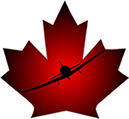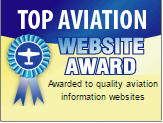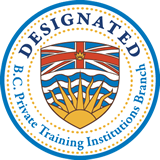 |
|
How to choose the right flight school?So, what does it cost to learn to fly?There is no simple, absolute answer to the question, "What does it cost to learn to fly." Most breakdowns of flight training costs are based on absolute minimum required times and tend to leave out a number of "incidentals" such as headset rentals, Authorized Person fees, or specific supplies. There are also a number of "optionals" a student may choose which can affect total costs but which enhance training and enrich a student's learning experience. The important issue when discussing costs is to approach flight training with a realistic set of questions, both for the flight school and for yourself. Learning to fly is an important investment. Here are some of the factors that significantly influence the final cost of earning a license: 1. Does the flight school you are investigating have a record of helping students complete their programs in close to minimum time? According to Transport Canada, the average time to complete a private pilot license in Canada is 80 hours. Many schools who advertise themselves as being "less expensive" will, in the long run, prove to be considerably more expensive than a school which works hard to help students complete their programs in close to minimum times. Saving a few dollars on a "per hour" basis only to fly 20 or 30 hours more than necessary isn't much of a savings. The real question is not what it costs per hour but how many hours will it take. Cheap isn't inexpensive; in fact, it's often much more expensive. The key to keeping costs down is to work with experienced, focused instructors with strong educational backgrounds who can help you learn what you need to know; to work with a flight school dedicated to providing you with the best possible flight training experience; to work with a flight training program focused on your needs and goals. That being said, it is a fact that the last twelve students that started and finished their private pilots licenses with Principal Air averaged 54.8 hours from start to finish. The average time of completion combined with our low hourly costs make us one of the most affordable flight schools in all of Canada. 2. How many hours per week can you, as a student, devote to flight training? Students who are able to spend more concentrated time on flight training complete their programs in less time than those who can only fly once a week or once every two weeks. Not all of us have the financial means or the time to fly full time while working toward completing our license. However, a more concentrated program always means less re-learning and will save the student time and money. 3. Is the flight school you are investigating organized, well run, and professional? As a student it is very important to you that instructors are available when you are, that appointments are kept, and that aircraft are clean and ready to fly when you are. When you come out to the airport ready to go, you want your flight school to honour that commitment. 4. Will the flight school you are investigating give you straight answers about your program and your progress? As a student, it is important, through the course of your training, to know where you are, how you are progressing and what you still need to complete. It is important to know, right from the beginning, the requirements of the program you are enrolled in, the progression of the learning experience and the level of proficiency you must achieve. You want to be sure that you, as a person, are important and that your flight training school is interested in your progress and willing and able to discuss it with you any time you feel the need to do so. 5. Is financing available for flight training? As a student you may wish to take advantage of the financing plans available to assist you with flight training. This may allow you to focus on your aviation goals and to concentrate your training resulting in considerable savings to you in the long run. We have found that the easiest way to to finance flight training is to get a personal line of credit through your local bank. Flight training is an educational endeavour and is recognized by the government of Canada. Expenses, just like tuition and college or university fees, incurred as a result of flight training may be considered income tax deductible. Principal Air assumes no liability for interpretations or changes in the tax laws, and a consultation with your tax professional is recommended. A receipt for income tax purposes will be issued upon request. PRINCIPAL AIR is ready to discuss your particular flight training needs, requirements and goals on an individual basis. Contact us for a detailed breakdown of costs and requirements for the training program you are planning. If you are looking for a flight training program that honours you as an individual, that clearly sets out the costs and requirements, that is focused in helping you complete your training in as few hours as possible while maintaining maximum safety and quality of learning, and that keeps you well informed of your progress, give us a call to discuss your flight training needs and requirements. We look forward to working with you to help you achieve your aviation goals. |


